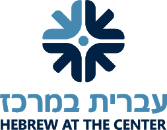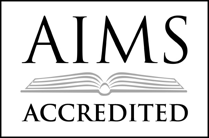Habits of the (Sixth Grade) Mind
February 2, 2016 by
We all have goals and aspirations for our children. As we send them through school, we hope we are giving them the necessary opportunities and tools to shape themselves and shape the world. Teachers and parents have lists of attributes that they hope they can cultivate in their children to help support their growth as learners and agents of change. Most likely, these lists do not include specific content objectives like knowing all the steps of photosynthesis or the sequence of battles in the American Revolution. Rather, the lists encompass the habits of mind and life skills that will support both academic and personal success well beyond the school years. As a participant in Yeshiva University’s nine-month leadership course, I studied the ways our students can learn effective habits of mind to enrich their personal, social, and academic growth. In fact, what we may sometimes see as an extra to our instruction is often key to reaching the scholarship, meaning, and growth that characterizes our supportive and rigorous learning at JPDS-NC.
It is important to be transparent with our children about our intentions and objectives; sharing these with our students helps to raise their awareness to what we value, invites them in to the process as co-creators of the learning experience, and offers us a shared vocabulary to further our conversations. We cannot assume that our students are aligned with us in the powerful purpose of their schooling; we must share our thinking, offer all of our perspectives, and most importantly, analyze and keep in mind why we are all here. I wondered if our students felt the same way about the purpose of their learning, the focus of their practice, and the hopes for their development. So I asked them to reflect on their journey as learners, their educational goals, and the skills or habits that they consider to be essential for their continued progress. Their answers were honest and insightful, and can be used to inspire our interactions and help us focus our efforts as parents and teachers. When asked to reflect on the mindset, outlook, and skills that they feel they need, students responded: “learning how to connect ideas, to form opinions and arguments, and to support them;” “interacting with others well;” “taking the risk of being wrong;” “getting outside our comfort zone;” “finding the fun of learning;” and “feeling the wow” as we discover our world. We discussed ways to cultivate a growth mindset, to try new things, to be flexible in our thinking and welcome new ideas, and to give and receive feedback that spurs engagement and advances possibilities. Then we looked at the sixteen “Habits of Mind” that noted educators Arthur L. Costa and Bena Kallick identified as some – but not all – of the essential characteristics we should be helping to cultivate in our children. As my students examined the list, they starred the ones that stood out to them as priorities. Then they each privately selected one that they felt was important and also represented a personal area for growth. Their homework for the week was to be more mindful in the practice of this habit, to recognize opportunities to grow in that area and to write a short paragraph about their efforts to make progress.
The students’ feedback reflected their appreciation of the habits of mind for influencing their thinking and action. They highlighted the value of mindfully attending to a specific personal attribute and valued having multiple opportunities even in one week to practice their new skills and approaches. A number of students shared how they worked on thinking more flexibly and more interdependently, listening more openly to their group members and being more willing to change their initial thinking. These students noted that by doing so, they found their collaboration improved and the group dynamic became more productive. Another student wrote about how she usually “doesn’t take risks in her work… doesn’t do more or extra,” but was motivated to go the extra mile as part of this assignment. Focusing on the habit of mind of “questioning and posing problems” as a way to “dive deeper” into her learning, she found that this led to greater understanding. Others referred to bringing greater intentionality to being more persistent, empathetic, innovative, flexible, and open. Some wrote of managing their impulsivity and of striving for accuracy, noting the gains they made in these areas simply by focusing on them and trying to improve. One student resolved to use to data from all her senses more, noting that she could develop this skill each morning as she walks to the bus stop. That week, she stopped to notice what she so often just rushed by; she paid more attention and “took in everything” more. And one student focused on the habit of mind of “enhancing wonderment and awe.” He summed up his efforts by writing that he tried to be “open to any surprises I get during the week and enjoy all of them.”
Since this assignment, we have developed a shared vocabulary and set shared objectives in the Sixth Grade. When we meet in groups to discuss strategies for crafting a story or identifying the steps for a research project, we highlight instances when we “think interdependently, deeply, openly and flexibly.” When we choose topics to explore to address universal questions about leadership, religion, and the arts, we celebrate how we “take responsible risks” with our learning by stepping out of our comfort zones as we extend our skills and our horizons. When we work together to create our own Greek-inspired mythology stories and a textbook that connects past history to contemporary circumstances, we spur each other on as we make the striving for excellence a shared objective. It is this culture of excellence that derives from, as well as informs, our approach, our mindset, and our habits of learning and living.
It is sometimes thought that because Jewish day schools have a dual curriculum, these schools have two separate foci – Academics and Jewish Life and Learning. At times, people may see these as connected, but ultimately separate goals, contemplating where our emphasis may lie at different times or in different grades. The reality is that the attributes, habits, and behaviors inherent in Jewish learning and experience serve the growth of scholarship, and the scholar’s focus on building subject knowledge and academic skills provides the context and content in which these constructive habits of learning and interaction grow. Our children experience their world on emotional, social, spiritual, and academic levels all at once. We must embrace that totality and foster learning that nurtures our children’s growth by offering them opportunities to become emotionally invested, to interact with others, to engage with meaningful purposes, to broaden their horizons, and to deepen their understanding. Teaching about habits of the mind, spending time to discuss with our students their connections to their world, helping our children create shared narratives that connect them to each other, to their families, and to their past and futures are integral to their experience as learners and will root their academic learning in a context of support and significance. From this foundation, our children go on to future academic settings, and they do so fortified with a better understanding of themselves and their world, along with the knowledge and habits that they need for continued progress and success.






